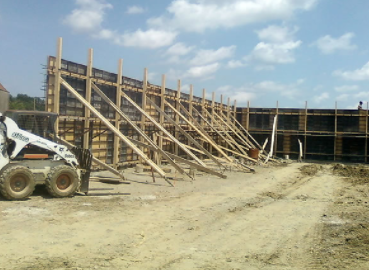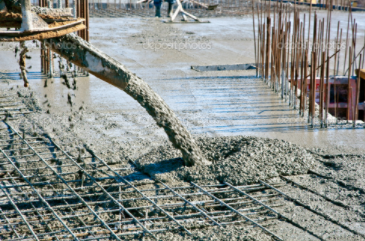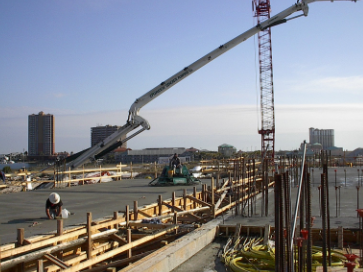Commercial ConcreteThe commercial concrete is not a new concept and has been used for so many commercial purposes. This article will focus on relaying the information about the concrete that is used in commercial floors and other applications. Furthermore, this will prove to you why you need this kind of concrete in your construction. What is Commercial concrete? It can be broadly defined as the concrete used to build or enhance business facilities, such as industrial buildings, warehouses, retail stores and even to make restaurants. It can also be found nearly everywhere in a building, including the walls, floors, exterior walkways and pavements, and even the architectural details. When compared with residential concrete, the commercial concrete usually has greater demands made for it, as it is amazing in providing the best structural performance and durability. The floors and pavements made out of the commercial cement often require a stronger concrete mix design and heavier reinforcement, such as post-tensioned slab construction. Even more, reasons not to avoid this commercial concrete. What are those factors which contribute to the strength of concrete? What will have you concerned is how the concrete can be made stronger. Well, the way to do this is to determine the factors that add strength is to add cement. The factor that most predominantly influences the concrete strength is the amount of the water used to the paste that binds the groups together. The higher this ratio is, the weaker the concrete will be and vice versa. Every desirable physical property that you can measure will be unpleasantly affected by adding more water. Moreover, other factors are as following:
However, not every material is as favorable to the cement as adding the water is, as many materials have no effect on concrete. There are some aggressive materials, such as most acids, that can have a weakening effect on concrete. This still doesn’t make commercial concrete a bad choice for you to invest in. Just to be on the safe side, there are a few things you can do to protect the concrete. The first line of defense against chemical attack is to use quality concrete with concentrated chemical resistance, followed by the application of protective cures to keep corrosive substances from contacting the concrete. Concrete, like all other materials, will slightly alter in volume when it dries out. In typical concrete, this change is about 500 millionths. This is the reason that contractors put joints in concrete pavements and floors. It is to allow the concrete to crack in a neat, straight line at the joint when the volume of the concrete changes due to shrinkage. A commercial concrete will make this joint undetectable and smooth. For more information about the commercial concrete solutions you can call our helpline as our representative will be glad to advise you the best solution for your needs. |
|



